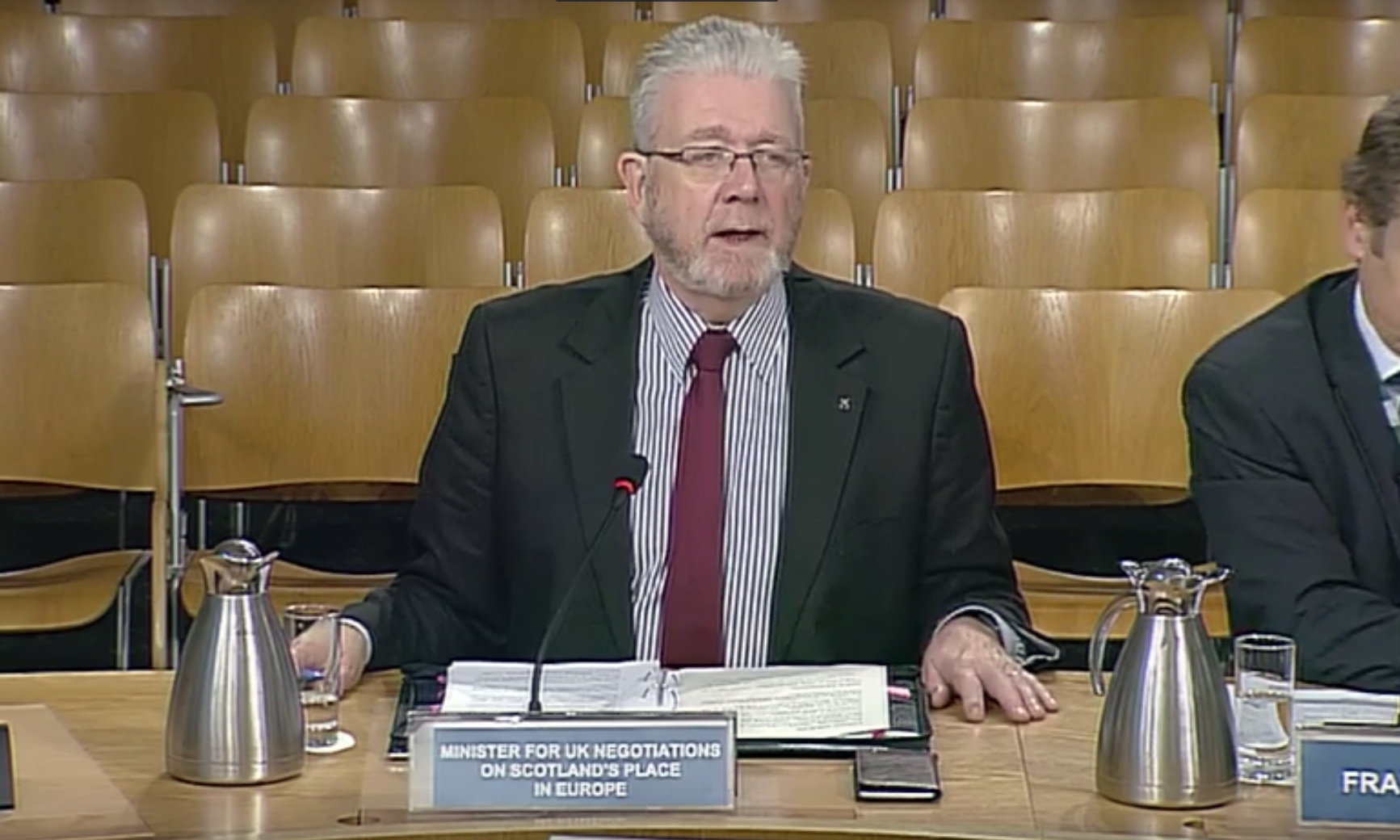Maintaining freedom of movement is “most important” to Scotland as it bids to stay part of Europe’s single market, MPs have been told.
Holyrood Brexit minister Mike Russell highlighted the importance of migrants to Scotland’s economy, saying parts of the country relied on EU citizens coming to the area for a “sustainable economic population”.
Overseas workers are also “crucial” to parts of the economy such as the health sector and higher education, he added.
Mr Russell said freedom of movement was also important to the technology sector and higher education, where 25% of research staff are European.
With 62% of Scots who took part in the UK referendum on European Union (EU) membership having voted to remain, the Scottish Government has repeatedly made the case to maintains its links with Europe, with staying part of the single market cited as crucial.
Being in the trading bloc guarantees the free movement of goods, capital, services and people, with Mr Russell saying: “Of those, important as they are, the most important to Scotland is freedom of movement. Without freedom of movement, Scotland would have a very considerable problem.”
Mr Russell, Holyrood’s minister for UK negotiations on Scotland’s place in Europe, pointed to Canada as an example of a country which has successfully established different migration policies in different areas.
He called on the UK Government to have the “openness to sit down and discuss these options with us”.
Mr Russell said systems needed to be set up to manage variations in immigration policy between regions but told MPs on the Scottish Affairs Committee: “You can manage that with some ease.
“It is not a major deal breaker, you can do it, the question is do you want to do it?”
Scotland is “not full up”, he added, telling the committee: “There are many parts of Scotland in which the presence of EU nationals, in the short or long term, is the only conceivable way in which you will have a sustainable economic population at the present moment.
“There is a particular fixation with migration and I understand we have very different circumstances, but it can be resolved like any other issue if you have the will to resolve it and you apply intelligence to it.”
Glasgow University principal Anton Muscatelli chairs a group of experts commissioned by First Minister Nicola Sturgeon to consider how best Scotland’s relationship with the EU can be protected in the wake of Brexit.
Prof Muscatelli said the issue of freedom of movement had been the subject of a “lot of discussion” by the Standing Council on Europe.
He also told MPs migration was “critical to certain sectors” in Scotland, adding: “If you look at the overall Scottish economy, its demographic decline was in large part arrested by net inward migration by skilled labour, a lot of it from the EU.
“That is critical, especially as Scotland is now in a devolved structure within the UK where its tax base is going to be critical in determining its own fiscal resources. It needs to grow the economy, it has to have that freedom of movement.
“For London, for Scotland, indeed I would argue for Wales and the northern parts of the UK, it’s going to be absolutely critical to maintain that flow of skills in order to allow growth in those economies.”



